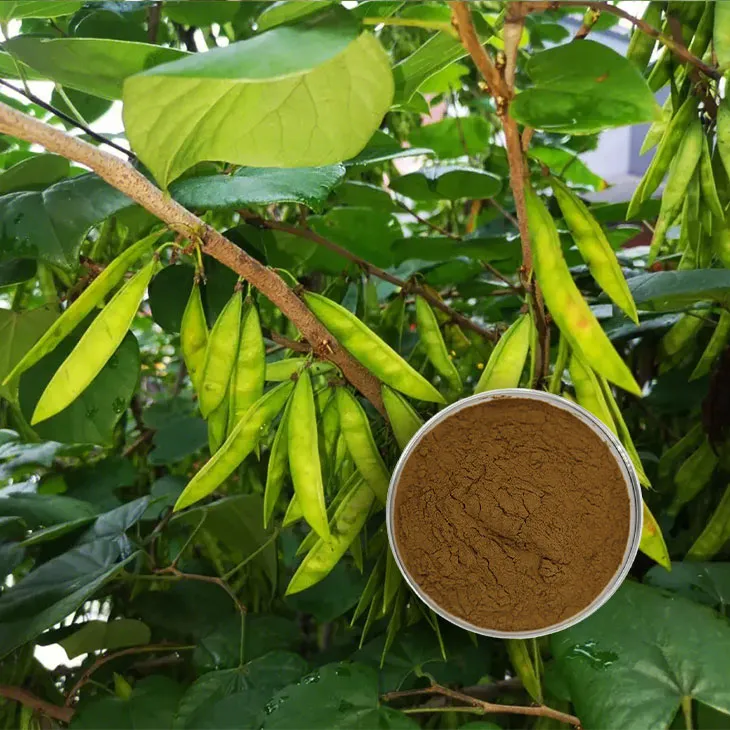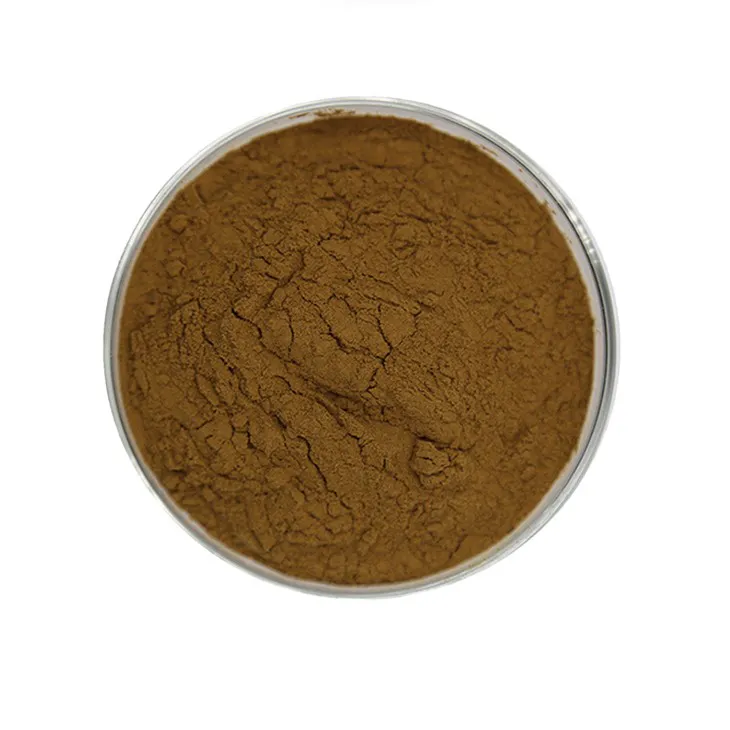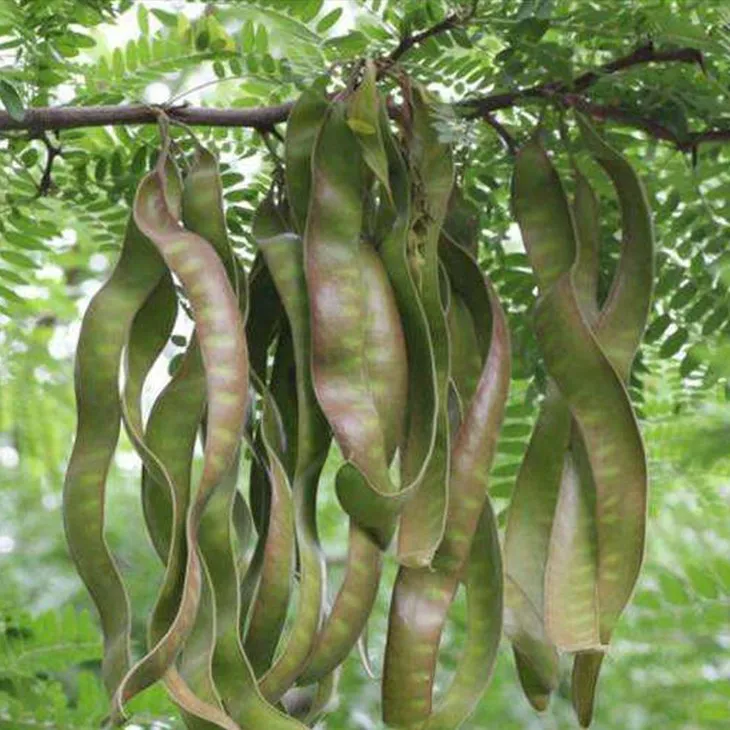- 0086-571-85302990
- sales@greenskybio.com
Benefits of Saponin Extracts in Cattle Feed.
2024-11-11

1. Introduction
The use of Saponin Extracts in bovine feed has emerged as a topic of great significance in the field of cattle farming. Saponins, a diverse group of natural compounds, are found in a variety of plants and have shown remarkable potential when incorporated into cattle feed. This article will explore the multiple benefits that Saponin Extracts bring to cattle, ranging from their impact on the rumen environment to their contributions to the overall health and productivity of the animals.

2. Role in the Rumen Environment
2.1 Regulation of Fermentation Process
The rumen is a complex microbial ecosystem where the initial breakdown and fermentation of feed occur in cattle. Saponin Extracts play a crucial role in this environment. They can effectively regulate the fermentation process. The microbial population in the rumen is responsible for breaking down complex carbohydrates, proteins, and other components of the feed. Saponins interact with these microorganisms, influencing their metabolic activities. For example, they can modify the growth and activity of specific bacterial groups involved in fiber digestion. This interaction leads to a more balanced fermentation process, which is essential for the efficient utilization of feed. When the fermentation process is well - regulated, cattle are able to extract more nutrients from the feed they consume, ultimately improving their growth and productivity.
2.2 Reduction of Feed Waste
As a result of the improved regulation of the rumen fermentation process by saponin extracts, there is a significant reduction in feed waste. In a normal rumen environment without the influence of saponins, some of the feed may not be fully digested due to inefficient fermentation. This undigested feed is then excreted, representing a waste of resources. However, when saponins are present in the feed, the enhanced fermentation efficiency ensures that a greater proportion of the feed is broken down and absorbed by the cattle. This not only benefits the individual animal in terms of better nutrition but also has economic and environmental implications. Farmers can reduce the amount of feed they need to supply to their cattle while still maintaining or even improving the animals' growth performance, and there is also less waste to dispose of, which is more environmentally friendly.

3. Health - related Benefits
3.1 Anti - Parasitic Properties
One of the important health - related benefits of saponin extracts in cattle feed is their anti - parasitic properties. Cattle are often susceptible to various internal parasites, such as worms, which can cause a range of health problems including reduced appetite, poor growth, and anemia. Saponins can act as natural anthelmintics, helping cattle to combat internal parasites. They interfere with the biology of the parasites in different ways. For instance, saponins may disrupt the cell membranes of the parasites, leading to their death or reduced ability to reproduce. This natural defense mechanism against parasites reduces the need for chemical dewormers. Chemical dewormers are often expensive and may have potential side effects on the cattle as well as environmental concerns due to their residues. By using saponin - rich feed, farmers can take a more natural and sustainable approach to parasite control in their cattle.
3.2 Antioxidant Effects
Another significant benefit of saponin extracts is their antioxidant effects. In the body of cattle, oxidative stress can occur due to various factors such as exposure to environmental toxins, infections, and normal metabolic processes. Oxidative stress can lead to damage to cells, including DNA damage, lipid peroxidation, and protein oxidation. This damage can have a negative impact on the overall health and productivity of the cattle. Saponins, with their antioxidant properties, can protect cells from oxidative damage. They do this by scavenging free radicals, which are highly reactive molecules that can cause cellular damage. By reducing oxidative stress, saponins contribute to maintaining the integrity of cells and tissues in cattle. This is beneficial for the normal functioning of various organs such as the liver, heart, and lungs, and ultimately for the overall health and productivity of the animals. A healthy animal is more likely to grow well, reproduce successfully, and be resistant to diseases.

4. Contribution to Sustainable Cattle Farming
The use of saponin extracts in cattle feed makes a significant contribution to sustainable cattle farming. By improving the efficiency of feed utilization through their impact on the rumen environment, saponin extracts help to reduce the amount of feed required per animal. This is important in the context of limited feed resources and the high cost of feed production. Additionally, their anti - parasitic properties reduce the reliance on chemical dewormers, which is beneficial for both the environment and the long - term health of the cattle. The antioxidant effects also play a role in maintaining the health of the animals, reducing the incidence of diseases and improving their productivity. Overall, saponin extracts offer a natural and multi - faceted solution to many of the challenges faced in cattle farming, promoting a more sustainable and efficient agricultural system.

5. Conclusion
In conclusion, saponin extracts have numerous benefits when used in cattle feed. Their role in the rumen environment in terms of regulating fermentation and reducing feed waste is of great importance for the economic efficiency of cattle farming. Moreover, their health - related benefits, including anti - parasitic and antioxidant effects, contribute to the overall well - being and productivity of cattle. These multiple advantages also align with the principles of sustainable agriculture, making saponin extracts a promising addition to cattle feed formulations. Future research may further explore the optimal dosage and combination of saponin extracts with other feed components to maximize their potential benefits in cattle farming.
FAQ:
What are the main benefits of saponin extracts in cattle feed?
Saponin extracts in cattle feed have several main benefits. They can regulate the rumen fermentation process, reducing feed waste. They also have anti - parasitic properties, decreasing the need for chemical dewormers. Moreover, saponins have antioxidant effects, protecting cells from oxidative damage, which is good for the overall health and productivity of cattle, contributing to more sustainable cattle farming.
How do saponin extracts regulate the rumen fermentation process?
The exact mechanisms by which saponin extracts regulate the rumen fermentation process are complex. Generally, they interact with the microbial population in the rumen. They may influence the growth and activity of different types of rumen microbes, which in turn affects the breakdown and utilization of feed components, leading to more efficient fermentation and less waste.
Can saponin extracts completely replace chemical dewormers?
While saponin extracts have anti - parasitic properties, it is unlikely that they can completely replace chemical dewormers at present. Their anti - parasitic effects may not be sufficient to deal with all types of internal parasites or severe parasite infestations. However, they can be used as a complementary measure to reduce the frequency and amount of chemical dewormer use.
How do saponin extracts exert their antioxidant effects in cattle?
Saponin extracts exert their antioxidant effects by scavenging free radicals. In cattle, these free radicals are generated during normal metabolic processes and can cause oxidative damage to cells. Saponins can neutralize these free radicals, protecting cells from damage and maintaining normal cell function, which is beneficial for the health and productivity of cattle.
Are there any potential drawbacks to using saponin extracts in cattle feed?
One potential drawback could be related to dosage. If the dosage of saponin extracts is too high, it may have adverse effects on the rumen microbes or the overall health of cattle. Also, more research is needed to fully understand their long - term effects. Additionally, the cost of incorporating saponin extracts into cattle feed may be a factor to consider.
Related literature
- The Role of Saponins in Ruminant Nutrition"
- "Saponin Extracts: A Promising Additive for Cattle Feed"
- "Beneficial Effects of Saponins on Cattle Health and Productivity"
- ▶ Hesperidin
- ▶ Citrus Bioflavonoids
- ▶ Plant Extract
- ▶ lycopene
- ▶ Diosmin
- ▶ Grape seed extract
- ▶ Sea buckthorn Juice Powder
- ▶ Fruit Juice Powder
- ▶ Hops Extract
- ▶ Artichoke Extract
- ▶ Mushroom extract
- ▶ Astaxanthin
- ▶ Green Tea Extract
- ▶ Curcumin
- ▶ Horse Chestnut Extract
- ▶ Other Product
- ▶ Boswellia Serrata Extract
- ▶ Resveratrol
- ▶ Marigold Extract
- ▶ Grape Leaf Extract
- ▶ New Product
- ▶ Aminolevulinic acid
- ▶ Cranberry Extract
- ▶ Red Yeast Rice
- ▶ Red Wine Extract
-
Angelica sinensis extract
2024-11-11
-
Boswellia Serrata Extract
2024-11-11
-
Giant Knotweed Extract
2024-11-11
-
Lemon Juice Powder
2024-11-11
-
Ginger Extract
2024-11-11
-
Propolis Extract Powder
2024-11-11
-
Golden Seal Extract
2024-11-11
-
Stevia Extract
2024-11-11
-
Hedyotis Diffusa Extract
2024-11-11
-
Acerola Juice Powder
2024-11-11





















